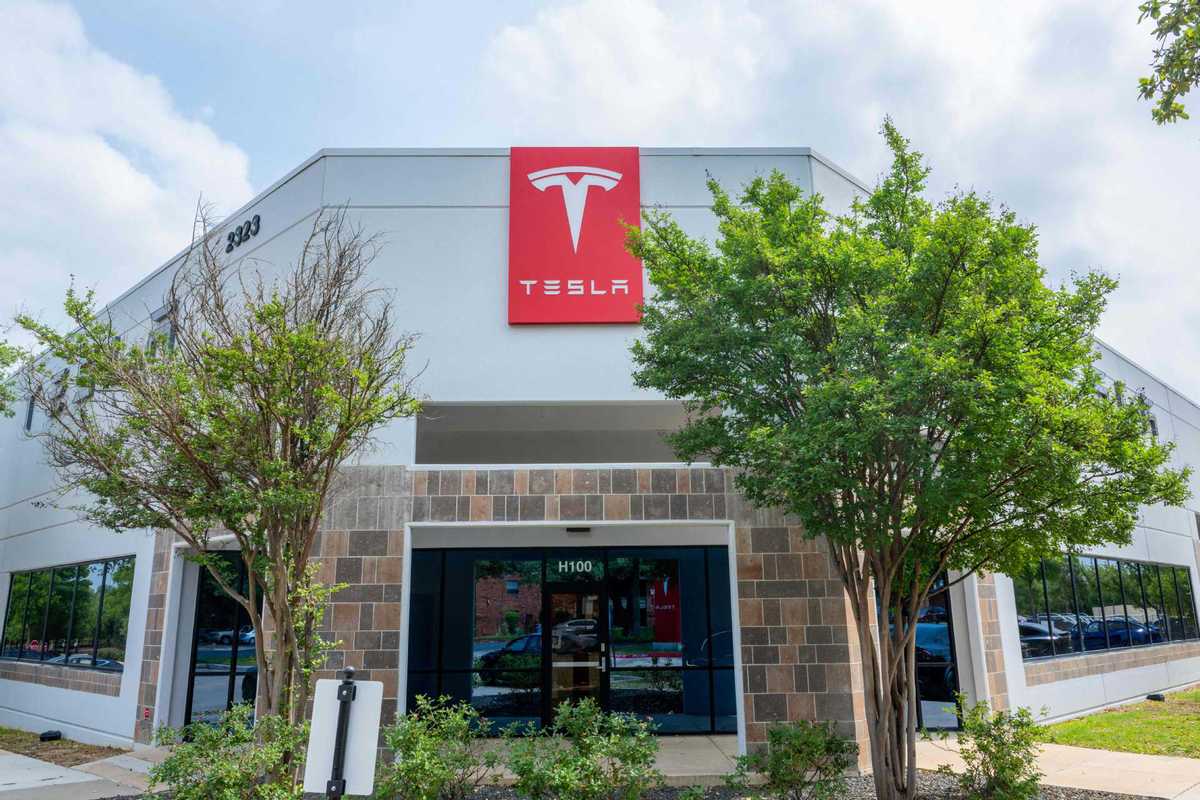Tesla to cut more than 10% of global workforce


Tesla, facing increasing competition and declining sales of its electric vehicles, said Monday that it would lay off more than 10 percent of its global workforce to cut costs.
On Monday, two of Tesla's senior executives, Drew Baglino and Rohan Patel, also announced their departure. Baglino was a senior vice-president. Patel managed policy and business development. They both shared the news on social media platform X.
"As we prepare the company for our next phase of growth, it is extremely important to look at every aspect of the company for cost reductions and increasing productivity," Tesla CEO Elon Musk said in a memo sent to all staff, according to media reports.
"As part of this effort, we have done a thorough review of the organization and made the difficult decision to reduce our headcount by more than 10 percent globally," the memo said.
Tesla had more than 140,000 employees globally at the end of 2023. The reduction is likely to affect at least 14,000 workers.
Tesla shares have endured a significant decline in recent months, plummeting by 31 percent year to date.
Despite the growth in the electric-vehicle global market, the rate of sales growth for Tesla has decreased.
This month, Tesla reported a decline in sales. The company said it delivered 387,000 cars worldwide, down 8.5 percent from the year before. It was the first time Tesla's quarterly sales had fallen on a year-over-year basis since the start of the COVID-19 pandemic in 2020.
The company slashed prices in 2023 to increase demand, which has reduced the profit Tesla makes on each car. Tesla will announce its financial results for the first quarter on April 23.
Monday's layoffs were the fifth major one since 2017, when the company laid off 2 percent of its workforce. Musk last announced a round of job cuts in 2022 as he conveyed concerns about the state of the economy to company executives.
The company now faces more competition in the electric vehicle market than it did previously.
In 2023, China's BYD outpaced Tesla for the second year in a row, producing more than 3 million new energy vehicles and becoming the world's largest electric vehicle seller, while Tesla made 1.84 million cars in 2023.
Xiaomi, a Chinese smartphone maker, last month launched its first electric car, the SU7. Xiaomi CEO Lei Jun said that the SU7 outperforms the Tesla Model 3 in more than 90 percent of specifications, except for two areas where he said Xiaomi may need three to five years to catch up with Tesla. The SU7 is approximately $4,000 cheaper than a similar Tesla.
Musk has previously recognized that China is Tesla's biggest rival in the EV area. "The Chinese car companies are extremely competitive," Musk said in November. "China is super good at manufacturing, and the work ethic is incredible.
"There's a lot of people who are out there who think that the top 10 car companies are going to be Tesla followed by nine Chinese car companies. I think they might not be wrong," Musk said.

































